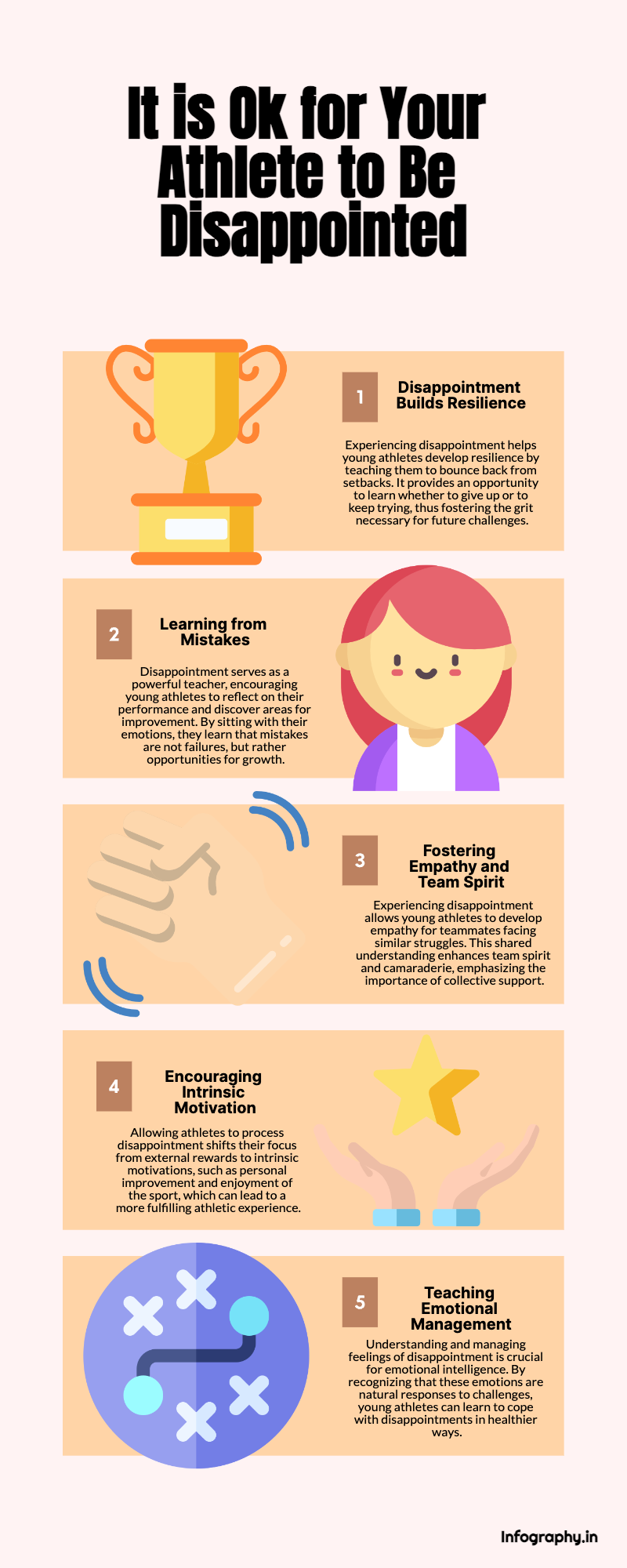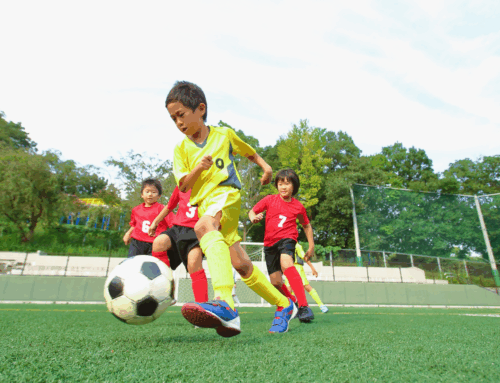Get our exclusive report. Download the iSport360 Club Switching Report Here – For Club Admins, Rec Leaders and Coaches.
It’s Okay for Your Young Athlete to Feel Disappointed
As parents, we all want our kids to experience joy, success, and fulfillment. But when it comes to youth sports, it’s natural to feel uncomfortable watching them face disappointment. Seeing them miss a winning shot, sit on the bench, or fall short of their own expectations can tug at our hearts, leaving us wanting to make it all better. It is ok for an athlete to feel disappointed.
However, disappointment is a healthy and essential part of every young athlete’s journey. Here’s why it’s okay – and even beneficial – for your child to experience it.

1. Disappointment Builds Resilience
Resilience is the ability to bounce back from setbacks, and it’s a skill that can’t be taught in a day. Youth sports, with their inevitable ups and downs, offer a unique training ground for developing resilience. When a young athlete feels the sting of disappointment, they’re presented with a choice: to give up or to try again. Allowing them to navigate their own emotions in these moments helps them develop the grit needed to handle future challenges, both on and off the field.
2. It Helps Them Learn from Mistakes
Disappointment is a powerful teacher. When a child makes an error during a game or fails to meet a personal goal, that sense of letdown can inspire reflection. They might start asking questions: “What could I have done differently?” or “How can I improve next time?” When we allow young athletes to sit with disappointment instead of shielding them from it, they learn how to evaluate their performance constructively. They come to understand that mistakes are not the end of the world but an opportunity to grow.
3. Disappointment Fosters Empathy and Team Spirit
In sports, things don’t always go as planned, even if they’ve worked incredibly hard. This is where disappointment can foster empathy. When young athletes understand what it’s like to experience a tough game or season, they’re more likely to support and uplift their teammates who may also be feeling down. Rather than focusing solely on their achievements, they learn to value teamwork and the shared journey. That sense of camaraderie builds a stronger team spirit, as they realize everyone faces disappointments – and that they’re not alone in overcoming them.
4. It Encourages Intrinsic Motivation
When we step back and let young athletes process disappointment, we encourage them to play for their own reasons. Acknowledging that disappointment is part of sports allows them to focus less on the external pressures to perform and more on the joy of improving, learning, and playing. Disappointment can remind them that sports aren’t just about trophies or points; they’re about striving for personal best and setting goals. When the motivation becomes intrinsic, their relationship with the sport is more likely to be positive and enduring.
5. It Teaches How to Manage Emotions
Learning to manage emotions like disappointment, frustration, and even anger is a critical life skill. Allowing young athletes to feel and process disappointment helps them recognize that it’s okay to feel these emotions. Instead of viewing disappointment as something negative to avoid, they can start to see it as a normal response to a difficult situation. As they become more comfortable experiencing and managing disappointment, they build emotional intelligence – the ability to understand and regulate their emotions in healthy ways.
Final Thoughts
As parents, one of the most valuable things we can do is to support our young athletes by letting them experience and learn from disappointment. When they understand that disappointment is temporary and that they have the tools to overcome it, they become more resilient, empathetic, and self-motivated. So, the next time your child feels disappointed on the field, remember: it’s not a setback but a step forward in their journey of growth and self-discovery. Let them feel it, and let them grow.
iSport360 is the only app that does it all for youth sports. For more information on what we do, click here.
About the author:
Amy Masters is a sports mom, coach, and club administrator. She has been coaching youth sports for more than 10 years. She started Jr Lions Field Hockey, the youth recreation program for the Hunterdon County community growing it from 40 players in year 1 to 150 players by year 3. A few years later, she saw the love and competitiveness grow then started Omega Field Hockey Club serving NJ and PA players. Before coaching, she was a collegiate field hockey player for Lock Haven University. In her spare time (lol), she is head of marketing for iSport360 and the co-editor of the Youth Sports Survival Guide. The Youth Sports Survival Guide is the largest youth sports newsletter in the world.
Learn more or request a demo of our youth sports software that is helping teams improve communication, organization and player development.
November 5, 2024





